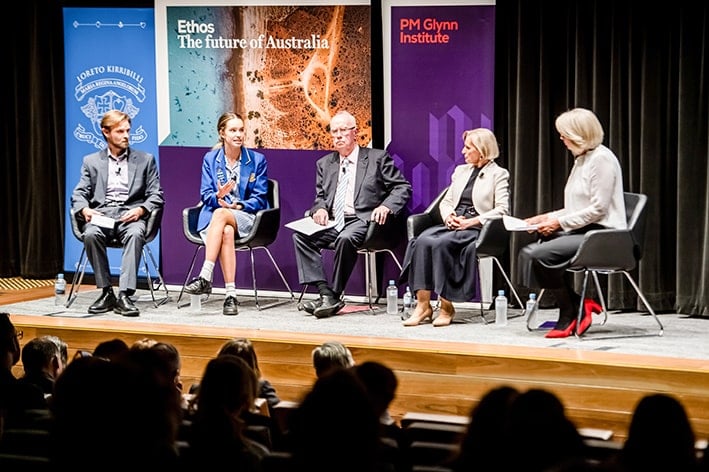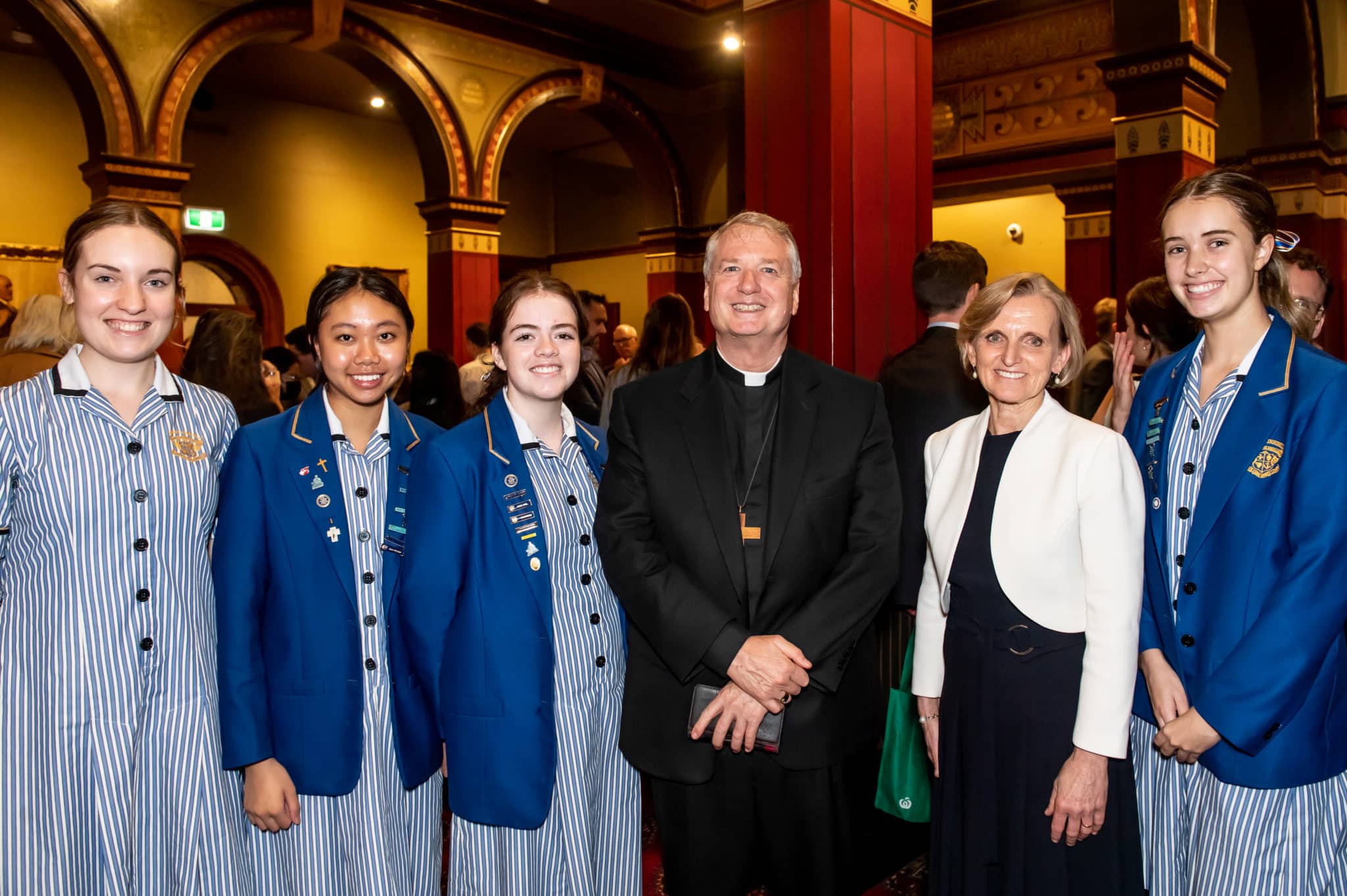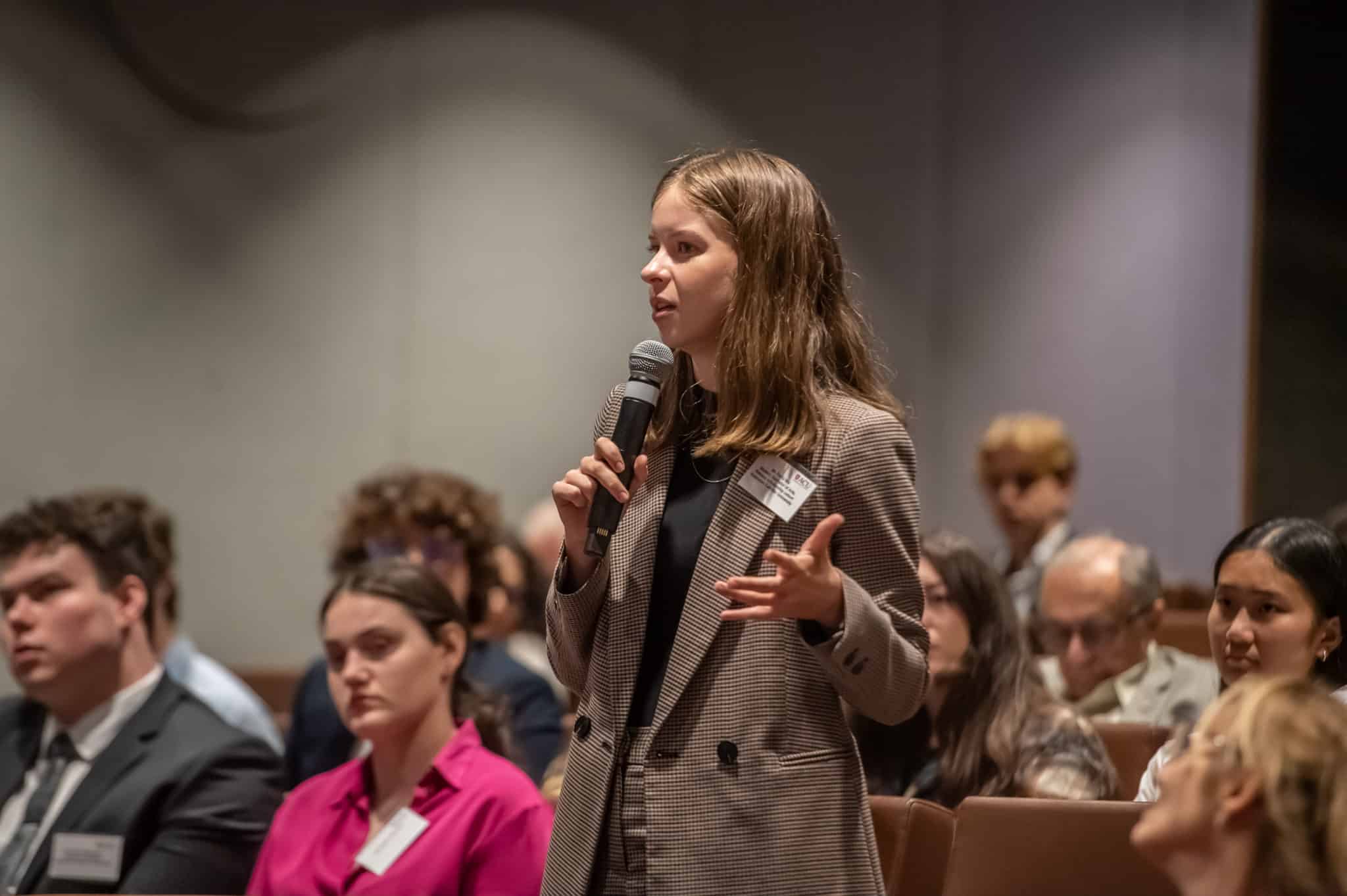
The Principal of one of Sydney’s top performing Catholic schools has called for stronger regulation of social media platforms to help combat cyber-bullying and on all schools to focus more in the curriculum on raising greater awareness about the benefits and challenges posed by social media.
Loreto Kirribilli Principal, Mrs Anna Dickinson was speaking at a forum organised by the Australian Catholic University’s PM Glynn Institute, Making Social Media Accountable on 15 March at the NSW Parliament.
Loreto Kirribilli was ranked the 20th best school in NSW, based upon its results in last year’s HSC exams, which made it the best performing Catholic school in the state in 2021.
Mrs Dickinson told the social media forum, governments should place tougher regulations on platforms including Facebook, Instagram and Twitter to ensure that users can’t hide behind anonymous accounts which she believes is linked closely to online bullying on the platforms.
“The reality is that when young people are face-to-face with each other, they tend to exercise more personal control over how they communicate with each other. But when they’re anonymous, they can do and say whatever they want with no repercussions”, she said.

The Loreto Kirribilli Principal said schools should take responsibility for raising greater awareness about social media through the curriculum and that parents also engage in regular conversations with their children about their social media use.
“So then as these young people go on to become voters, they become more discerning around what they’re hearing through social media and they’re then more aware that there is some fake information out there and they need to ensure they’re listening to all points of view on key topics of the day”, Mrs Dickinson added.
A senior Loreto Kirribilli student, first councillor Gemma, told the forum, that based upon a survey at her school, children as young as 10 are engaging with social media platforms and are especially vulnerable to misinformation, which highlights the need for better regulation.
“You can go onto Tik Tok now and say you’re 14 and there’s no need to provide any documentation to confirm your age. This means that there’s no regulation of content that can be seen on these platforms by a 10 year old and that’s really concerning”, she said.
That’s a concern shared by one of Australia’s most well respected journalists, The Editor at Large for The Australian, Paul Kelly.
He told the NSW Parliament forum, recent events both in Australia and overseas, have highlighted how easily members of the public can be misled when false claims are widely circulated on social media.
We should certainly be targeting the algorithms since it’s completely unworkable to have news and information fed back to you that only suits your own tastes. That’s death to democracy!
“We saw what happened, for example, after the United States presidential election in 2020, when 40 percent of Americans believed that Joe Biden stole the election and that Donald Trump actually won”, he explained.
Mr Kelly believes one of the fundamental weaknesses in social media platforms is that they rely too much on algorithms which ensure that users only tend to end up seeing and engaging with content which reflects their own world view.
“Under this model, your prejudices and your views as reflected on a platform like Facebook in your likes and dislikes are reinforced. This is completely contrary to the principles of a free society in which we can regularly engage in a proper, healthy debate and test our opinions”, he added.
The veteran journalist and author has pointed to concerning observations about the danger this poses for democracy if this trend continues.
“The New York University social psychologist, Jonathan Haidt has said, based upon his analysis of social media that he fears whether American democracy can survive over the course of the next 30 years, based upon the application of social media and what it’s doing in terms of its social impact in the United States”, Paul Kelly said.

That’s a view shared by another panellist at the forum, ACU’s Dianoia Institute for Philosophy Director, Professor Stephen Finlay.
“We should certainly be targeting the algorithms since it’s completely unworkable to have news and information fed back to you that only suits your own tastes. That’s death to democracy!”, he said.
“So unless we can do something about these algorithms, I do think that democracy is impacted because this can lead to a complete failure to understand each others’ perspectives”.
Professor Findlay said the anonymity of social media platforms also needs to be urgently addressed, saying this is definitely leading to a greater risk of online bullying amongst school students.
Related:
Simcha Fisher: How to stay human while arguing on social media
